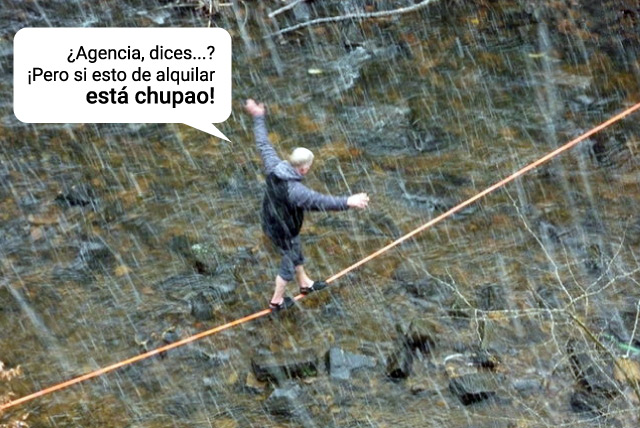Real estate market outlook for the second half of 2024
We deal with uncertainty and interpret key data.
In this article, we look at the events and figures of the past two years, exploring how they can help guide our expectations, even if the future remains unpredictable.
Earlier this year, our marketing director commissioned me to write an article on "the outlook for the property market in 2024", specifically for the second half of the year. However, here we are in May, and reality remains more complex than any forecast can capture. So, instead of a prediction (I'm not even going to try), This analysis will explore the recent data, its possible implications and the challenges it poses for residential real estate brokerage.
We will focus on two key indicators: the number of sales and the price variation. With these data, although we cannot foresee the future, we will be able to better understand what has happened in the market over the last two years.
Ready to dig deeper?
What happened in the real estate sector in 2022
- 720,000 homes sold
- 355,000 mortgages signed
- GDP growth of 5.81GDP3Q3T
- Increase in employment by 1.8%
- Euribor: up from -0.47 in January to 3.02 in December
In 2022, the real estate sector in Spain was influenced by significant events: the passing of the Housing Rights Bill in February and the start of the war in Ukraine.
Although analysts' forecasts suggested a sales drop of around 3% and a price increase between 2% and 6%, the reality was different. Sales increased by 7.5% and prices rose by 7.4%. This occurred in a context of post-pandemic recovery, with growing residential demand despite negative supply chain effects and rising commodity prices.
"The post-pandemic recovery boosted the real estate sector in 2022."
What happened in the real estate sector in 2023
- 640,000 homes sold
- 280,000 mortgages signed
- GDP growth of 2.51GDP3Q3T
- Employment rises by 3.81 p.p.3t3t
- Euribor: from -3.33 in January to 3.67 in December
In 2023, with the entry into force of the Housing Rights Act In May and the call for early elections, the market experienced a slight slowdown. Analysts forecast a 5% to 15% drop in sales and a 2% to 5% change in prices, and although they were broadly correct, the property market in Spain was resilient. There was a 11% drop in sales, but prices continued to rise with an increase of 3.7%.
The Israeli-Palestinian conflict, which started in October, brought additional uncertainty, affecting consumer and investor confidence. However, prices and sales managed to remain above minimum forecasts.
"The Right to Housing Act impacts the market in 2023."
The real estate market in 2024
The first months of 2024 present mixed data. Sales have grown by 7.3% in January and 10.3% in February compared to the same period in 2023, although mortgages have shown an opposite evolution, with a drop of 10.3% in January and a slight rebound of 3.8% in February.
Other key factors include:
- GDP growth forecast at 1.81GDP3Q3T
- 2% employment increase
- Euribor estimated at 3.25% for December
Against this background, the question arises: will 2024 be the last year of this short adjustment cycle? While analysts predict a drop in sales from 5% to 10% and an increase in prices between 2% and 5%, it is difficult to know whether market behaviour will follow this trend. Other factors, such as the upcoming US elections and the possibility of Donald Trump being re-elected, could introduce further economic uncertainties affecting the global real estate sector.
Final reflection
We live in an era in which real estate forecasting is a challenge, and the only certainty is the need to adapt our expectations and strategies (read the article Attracting and selling housing in bad times).
Should we believe the analysts again? Should we trust the historical series that, roughly speaking, tell us that real estate cycles in Spain are 8 years of growth followed by 8 years of adjustment? When will the contractionary trend in second-hand stock that is causing prices not to fall be reversed?
We would like to live in an era in which forecasting real estate But this does not seem to be the case, so I invite you to learn to use data to ask questions and to ask questions that prepare you for the unpredictable.





